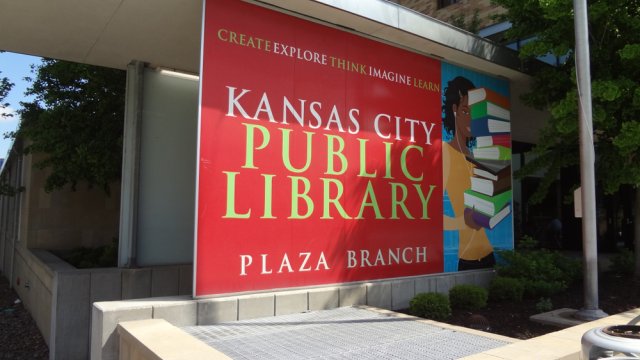Table of Contents
America’s public libraries must not take up arms in the culture war

Actor Kirk Cameron and conservative publisher Brave Books are “calling on all families who love God and love America” to book meeting rooms at their local public libraries on Aug. 5 to “pray, sing, and read Brave Books and other books of virtue.” Brave Books is promoting the grassroots-organized “See You at the Library” event as an alternative to drag queen story hour. But it may not be welcome at all libraries.
On Monday, Brave Books accused the American Library Association of trying to “sabotage” the event. Evidence cited by the company raises serious concerns that some libraries may try to keep the story hours out of their publicly available meeting rooms because of opposition to Cameron’s and Brave Books’ ideological beliefs. Meanwhile, an organization called CatholicVote is leading an illiberal “Hide the Pride” campaign urging parents to go to their local libraries and check out books on Pride Month displays to deny access by other patrons.
The entire affair is a reminder of how important it is for institutions dedicated to free speech and free inquiry to stick to those principles amid an increasingly heated culture war.
American Library Association warns librarians about ‘See You at the Library’ event
In a June 10 webinar, Deborah Caldwell-Stone, who directs the ALA’s Office for Intellectual Freedom, notes the ALA recently learned “about particular attacks on libraries involving Pride month” and on “the dignity and humanity of our LGBTQ users in libraries.” She therefore altered her presentation to offer librarians what she called “a guideline about how to use public forum doctrine to create rules and regulations that help [librarians] keep in control of the library in particular situations.”
The presentation gives correct information about how the First Amendment applies to public libraries. Caldwell-Stone explains that when the government creates a space for members of the public to engage in expressive activity, such as a library meeting room, it may enforce reasonable, viewpoint-neutral rules, but it cannot restrict access to that space based on the views or identity of the speaker.
Our public libraries must not endeavor to deny the use of meeting rooms simply because of an individual’s or group’s political or ideological views — that is, its “particular cause.”
She also raises legitimate concerns about an organization called CatholicVote, which leads a “Hide the Pride” campaign urging parents to go to their local libraries and check out books on Pride Month displays to deny access by other patrons. Coordinated actions by individuals to empty out library displays or check out books simply to make them unavailable to others are illiberal, shameful, and subvert the library’s mission of providing access to information and ideas for all members of the community.

Show-Me state censorship: Proposed new rule threatens Missouri’s public libraries
News
A proposed rule in Missouri would restrict public libraries from using state funds to purchase books that discuss sex and would allow "any person" to challenge those materials.
Concerningly, though, Caldwell-Stone also repeatedly refers to the Brave Books event and suggests libraries may use facially viewpoint-neutral policies for the purpose of preventing disfavored groups and individuals from accessing library space otherwise available for reservation by the public. At one point in the presentation, she says:
Now, you might want to ask: Why is it important that the library have an ability to establish reasonable rules to govern user behavior and access to the library? I’ll tell you why. And that’s because we’re seeing groups that seek to censor LGBTQIA materials or seek to disparage or silence LGTBQIA library users, exploit the open nature of a public library to advance their agendas. For example, right now, Brave Books and Kirk Cameron are conducting a campaign to take over libraries on August 5th by applying to use, encouraging individuals to use library meeting rooms for Kirk Cameron story hours.
Caldwell-Stone correctly explains that libraries can generally decline to offer public meeting rooms entirely, prioritize library-sponsored programs in them, and impose restrictions on usage contingent upon viewpoint-neutral factors like the length of meetings or the hours meeting rooms are available. But she then adds: “You can start seeing how you can start constructing rules that might respond to individuals who want to exploit your meeting rooms for commercial purposes or to promote a particular cause.”
Brave Books also tweeted a screenshot of an email it claims is from the New Jersey State Library system’s children’s services coordinator, which says Brave Books publishes literature with a “right-wing ideology” and warns librarians about the “See You at the Library” event. The email concludes, “Since it’s during summer reading, I hope that many of you already have library related programs scheduled in your meeting rooms that day.”
The email stops short of explicitly calling on libraries to schedule programs in their meeting rooms to prevent “See You at the Library” story hours, but it’s hard to read the last sentence as anything but a nod and a wink intended to bring about that outcome.
Viewpoint discrimination has no place in public libraries
To be sure, libraries may prohibit disruptive behavior. And organized attempts by some members of the public to deny others access to certain materials on the basis of viewpoint should be rejected. But answering illiberalism with illiberalism is a dangerous mistake. Our public libraries must not endeavor to deny the use of meeting rooms simply because of an individual’s or group’s political or ideological views — that is, its “particular cause.”
A library ordinarily can decide to host its own programming in a meeting room any day or time it wants. But if it decides to fill its meeting rooms up with library programming on a certain day or to adopt new restrictions on the use of meeting rooms for the specific purpose of making them unavailable to politically disfavored individuals, it will run into First Amendment problems. The Supreme Court has explained that even “facially neutral and valid justifications” cannot, under the First Amendment, save a law or policy that is “based on the desire to suppress a particular point of view.” Public libraries must not marshal viewpoint-neutral criteria to keep viewpoints their staff disfavors out of public libraries.
The culture war has more than enough combatants without vital institutions like public libraries or universities joining the melee.
Constitutional issues aside, it’s disturbing to see a public library system on red alert because people who hold views apparently disfavored by some library staff or patrons might request use of its publicly available meeting rooms. The ALA Library Bill of Rights rightly proclaims that a “person’s right to use a library should not be denied or abridged because of origin, age, background, or views,” and that exhibit spaces and meeting rooms opened to the public should be available “regardless of the beliefs or affiliations of individuals or groups requesting their use.” A public library should want to see this diversity among its user base. It should encourage people of all beliefs, identities, and backgrounds to use its space, including those with dissenting or unpopular views.
Now more than ever, amid the partisan flare-ups that intensify polarization and kill dialogue, we need our society’s strongholds of free thought and free inquiry to hold fast to these principles. Any serious commitment to freedom of expression requires the protection of all views. The moment an institution ostensibly committed to incorporating and promoting the value of free expression starts to instead favor one political side or another, it will lose public trust and leave our country even more vulnerable to the forces of illiberalism.
The culture war has more than enough combatants without vital institutions like public libraries or universities joining the melee. They have a much more important, if less sensational, task of strengthening and preserving the foundations of our pluralist, democratic republic.
Recent Articles
FIRE’s award-winning Newsdesk covers the free speech news you need to stay informed.

Texas tramples First Amendment rights with police crackdown of pro-Palestinian protests

Here’s what students need to know about protesting on campus right now

Kansas takes a stand for intellectual freedom


